#linguistics books
Text

📔: Speak: A Short History of Language by Tore Janson (feat. Some glorious October sunshine and my boyfriend’s very cozy fleece)
#brackenblythe#studyblr#mine#study aesthetic#academic#light academia#dark academia#studyspo#bookish#bookblr#linguistics#literature#nonfiction#vanilla aesthetic#warm and cozy#cozy academia#cozy aesthetic#books and reading#reading#linguistics books
118 notes
·
View notes
Text
Do y'all know any good linguistics books ?????
I'm really interested in the field & wanna read more up about it [& I cant afford to study it at the moment so I want as many books as possible]. Anything related go it works, but I'm particularly interested in language acquisition, accents, etymology, & language creation [Both in the sense of conlang creation & how new languages form & develop].
But again, I'm interested in it as a whole so books outside of those things are also good !!!
Also, while I'm mostly looking for books, YouTube videos & documentaries are also good !!!!
15 notes
·
View notes
Text
As much as I adore conlangs, I really like how the Imperial Radch books handle language. The book is entirely in English but you're constantly aware that you're reading a "translation," both of the Radchaai language Breq speaks as default, and also the various other languages she encounters. We don't hear the words but we hear her fretting about terms of address (the beloathed gendering on Nilt) and concepts that do or don't translate (Awn switching out of Radchaai when she needs a language where "citizen," "civilized," and "Radchaai person" aren't all the same word) and noting people's registers and accents. The snatches of lyrics we hear don't scan or rhyme--even, and this is what sells it to me, the real-world songs with English lyrics, which get the same "literal translation" style as everything else--because we aren't hearing the actual words, we're hearing Breq's understanding of what they mean. I think it's a cool way to acknowledge linguistic complexity and some of the difficulties of multilingual/multicultural communication, which of course becomes a larger theme when we get to the plot with the Presgar Translators.
#imperial radch#also a great example of the 'you don't have to be Tolkien' phenomenon#if you want to think about linguistic differences by building all the languages in your setting#and being able to explain what those differences are through actual texts in the language in question#that's AWESOME#but it's not the only way to do it#it's also interesting because of course this style only works in book form#everyone's speaking different languages but in a written account they're all 'translated' for you#but of course if it was a TV series they would all have to be speaking a language the audience understands#(or you *would* have to go wild with conlangs)#and i think that's really cool as well--#how for a series where song is so central we don't actually hear any of the actual in-universe words or any of the music#it's all been filtered#and again you know this is happening but seeing the examples of how real songs--the shape hymns and 'L'homme Arme'--are presented#makes you a lot more viscerally aware of how limited your perspective is#it's good#ann leckie i love you
2K notes
·
View notes
Text
Interior Department Announces New Guidance to Honor and Elevate Hawaiian Language

"In commemoration of Mahina ʻŌlelo Hawaiʻi, or Hawaiian Language Month, and in recognition of its unique relationship with the Native Hawaiian Community, the Department of the Interior today announced new guidance on the use of the Hawaiian language.
A comprehensive new Departmental Manual chapter underscores the Department’s commitment to further integrating Indigenous Knowledge and cultural practices into conservation stewardship.
“Prioritizing the preservation of the Hawaiian language and culture and elevating Indigenous Knowledge is central to the Biden-Harris administration's work to meet the unique needs of the Native Hawaiian Community,” said Secretary Deb Haaland. “As we deploy historic resources to Hawaiʻi from President Biden’s Investing in America agenda, the Interior Department is committed to ensuring our internal policies and communications use accurate language and data."
Department bureaus and offices that engage in communication with the Native Hawaiian Community or produce documentation addressing places, resources, actions or interests in Hawaiʻi will use the new guidance on ‘ōlelo Hawaiʻi (Hawaiian language) for various identifications and references, including flora and fauna, cultural sites, geographic place names, and government units within the state. The guidance recognizes the evolving nature of ‘ōlelo Hawaiʻi and acknowledges the absence of a single authoritative source. While the Hawaiian Dictionary (Pukui & Elbert 2003) is designated as the baseline standard for non-geographic words and place names, Department bureaus and offices are encouraged to consult other standard works, as well as the Board on Geographic Names database.
Developed collaboratively and informed by ʻōlelo Hawaiʻi practitioners, instructors and advocates, the new guidance emerged from virtual consultation sessions and public comment in 2023 with the Native Hawaiian Community.
The new guidance aligns with the Biden-Harris administration’s commitment to strengthening relationships with the Native Hawaiian Community through efforts such as the Kapapahuliau Climate Resilience Program and Hawaiian Forest Bird Keystone Initiative. During her trip to Hawaiʻi in June, Secretary Haaland emphasized recognizing and including Indigenous Knowledge, promoting co-stewardship, protecting sacred sites, and recommitting to meaningful and robust consultation with the Native Hawaiian Community."
-via US Department of the Interior press release, February 1, 2024
--
Note: I'm an editor so I have no idea whether this comes off like as big a deal as it potentially is. But it is potentially going to establish and massively accelerate the adoption of correctly written Native Hawaiian language, as determined by Native Hawaiians.
Basically US government communications, documentations, and "style guides" (sets of rules to follow about how to write/format/publish something, etc.) can be incredibly influential, especially for topics where there isn't much other official guidance. This rule means that all government documents that mention Hawai'i, places in Hawai'i, Hawaiian plants and animals, etc. will have to be written the way Native Hawaiians say it should be written, and the correct way of writing Hawaiian conveys a lot more information about how the words are pronounced, too, which could spread correct pronunciations more widely.
It also means that, as far as the US government is concerned, this is The Correct Way to Write the Hawaiian Language. Which, as an editor who just read the guidance document, is super important. That's because you need the 'okina (' in words) and kahakō in order to tell apart sizeable sets of different words, because Hawaiian uses so many fewer consonants, they need more of other types of different sounds.
And the US government official policy on how to write Hawaiian is exactly what editors, publishers, newspapers, and magazines are going to look at, sooner or later, because it's what style guides are looking at. Style guides are the official various sets of rules that books/publications follow; they're also incredibly detailed - the one used for almost all book publishing, for example, the Chicago Manual of Style (CMoS), is over a thousand pages long.
One of the things that CMoS does is tell you the basic rules of and what specialist further sources they think you should use for writing different languages. They have a whole chapter dedicated to this. It's not that impressive on non-European languages yet, but we're due for a new edition (the 18th) of CMoS in the next oh two to four years, probably? Actually numbering wise they'd be due for one this year, except presumably they would've announced it by now if that was the case.
I'm expecting one of the biggest revisions to the 18th edition to add much more comprehensive guidance on non-Western languages. Considering how far we've come since 2017, when the last one was released, I'll be judging the shit out of them if they do otherwise. (And CMoS actually keep with the times decently enough.)
Which means, as long as there's at least a year or two for these new rules/spellings/orthographies to establish themselves before the next edition comes out, it's likely that just about every (legit) publisher will start using the new rules/spellings/orthographies.
And of course, it would expand much further from there.
#don't ask me about the magazine and newspaper half of this#bc I do Not know AP style#except the differences I'm annoyed at lol#ap doesn't respect the oxford comma#hawaii#hawaiʻi#language#orthography#linguistics#language stuff#hawaiian#native hawaiian#united states#publishing#book publishing#indigenous#indigineous people#indigenous languages#language revitalization#language resources#editorial
383 notes
·
View notes
Text
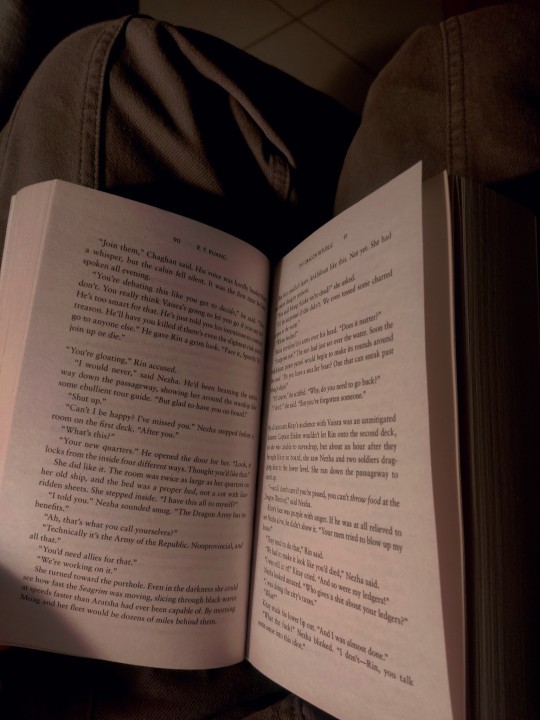
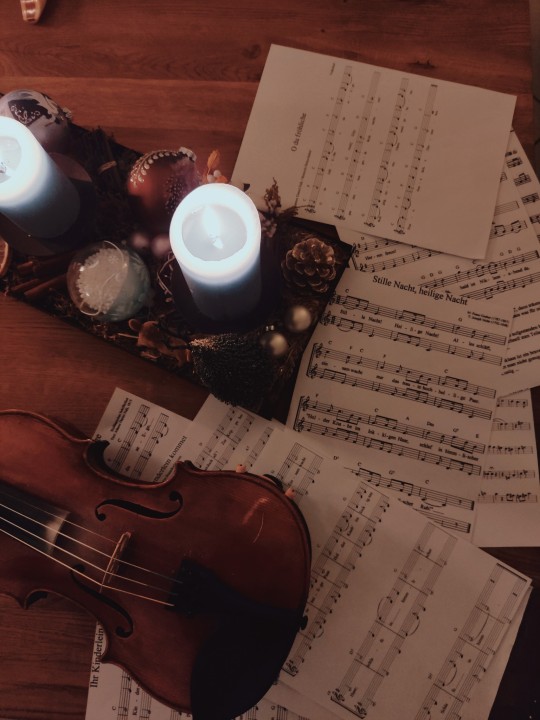


4.1.24 📚 three weeks of mostly lazing around, reading and enjoying the free time have come to an end :') it's time to start working on my thesis
#i got so many books for christmas😩💖💖💖#studyblr#langblr#aesthetic#study aesthetic#study inspiration#studying english literature#studying linguistics#studyspo#academia#jaystudies
476 notes
·
View notes
Text

the feminine urge to skulk through the rain slicked streets of an african mega city in the wake of an invasion to solve a mystery that could turn the tide of a war unlike mankind has ever seen
#i just really love this game#it was so good#halo 3 odst#transfem#mtf#transgender#trans#fuck the books rookie is transfem#she the strong and silent type because she would infodump on her new squad and fill the comms with facts about grunt linguistic capabilitie
661 notes
·
View notes
Text

I’m reading this book at the moment, and did you know that shepherds had their own counting system in parts of Northern England, Wales and the Scottish Borders?
“… let’s start with a little known, deliciously quirky, remnant called the 'shepherds' score', or Yan Tan Tethera. It’s an ancient way of counting, still used by some shepherds today, in northern England, Wales, parts of the southwest and lowland Scotland. The system is vigesimal, or base-20. It stops at twenty - once a shepherd had counted to this number, he’d mark it in some way (a notch on his crook, perhaps, or a stick placed in the ground) and then start again at one.
Linguistically, its origins are lost, but some scholars believe it may have its roots in Brittonic (or Brythonic) languages, those early versions of Welsh, Cornish and Breton spoken during the Iron Age. Individual words vary slightly from region to region, but they all share remarkable similarities. The Lincolnshire version goes like this:
Yan (1), Tan (2), Tethera (3), Pethera (4), Pimp (5), Sethera (6), Lethera (7), Hovera (8), Covera (9), Dik (10), Yan-a-dik (11), Tan-a-dik (12), Tethera-dik (13), Pethera-dik (14), Bumfit (15), Yan-a-bumfit (16), Tan-a-bumfit (17), Tethera-bumfit (18), Pethera-bumfit (19), Figgot (20).
The numbers above ten use a combination of smaller digits - so eleven is Yan-a-dik (one and ten) - it's brilliant in its simplicity and rhythmic bounce when spoken aloud.”
— A Short History of the World According to Sheep, Sally Coulthard, p. 68
#fibre crafts#linguistics#Yan tan tethera#this books has some very interesting sections#would recommend if you do wool based crafts
6K notes
·
View notes
Text
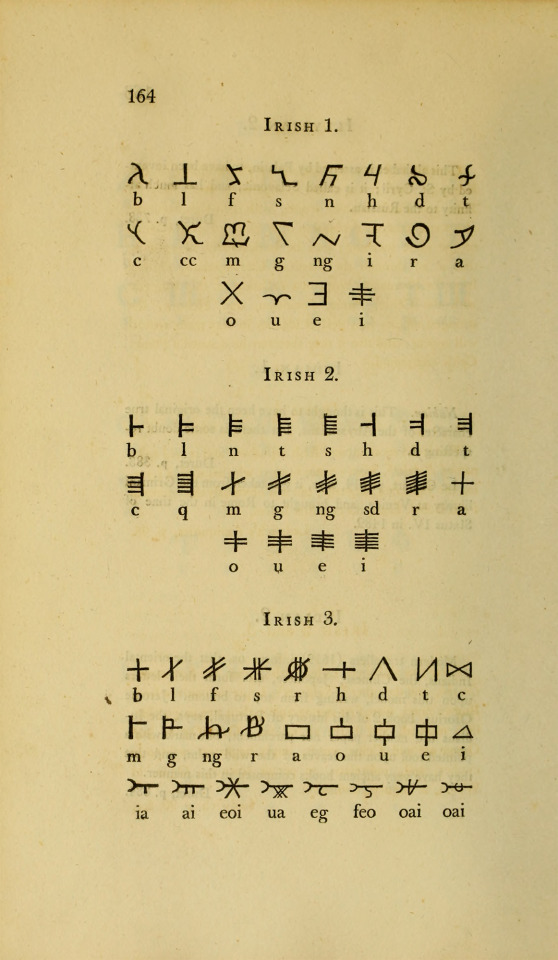
Edmund Fry, Pantographia; containing accurate copies of all the known alphabets in the world…, Cooper and Wilson, London, 1799, pp. 164-169


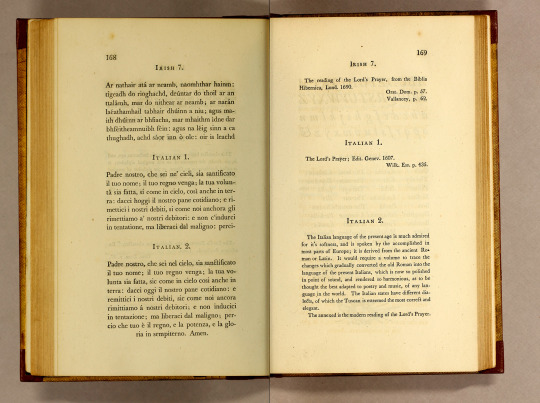
Full Title: Pantographia; containing accurate copies of all the known alphabets in the world; together with an English explanation of the peculiar force or power of each letter: to which are added, specimens of all well-authenticated oral languages; forming a comprehensive digest of phonology
#graphic design#typography#alphabet#specimen#visual writing#linguistics#anthropology#book#edmund fry#cooper and wilson#1790s
268 notes
·
View notes
Text
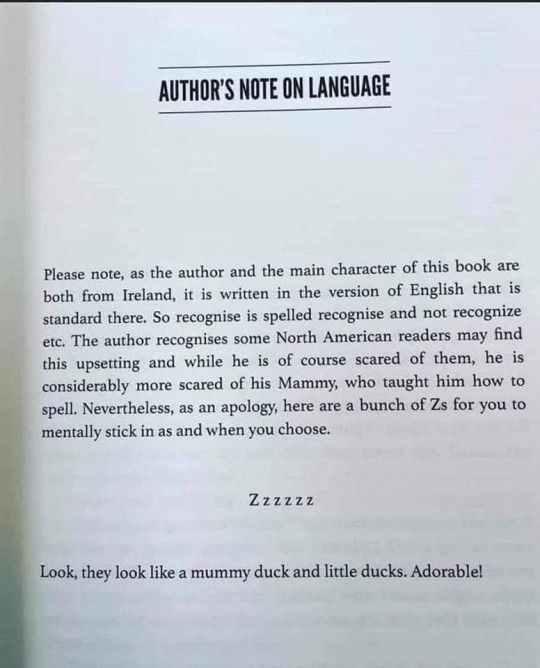
book: Disaster Inc by Caimh McDonnell
#literature#books#reading#bookblr#studyblr#dark academia#classic academia#light academia#academia#literature memes#languages#linguistics#language#polyglot#langblr#my posts
701 notes
·
View notes
Text
May 2023: Spanish Because Internet, True Biz, and Word Magic
This month, I announced that there’s going to be a Spanish-language edition of Because Internet coming at some point in 2024! Spanish has been the translation that people have requested from me the most and I’m delighted that Álex Herrero and the other folks at Pie de Página are making it happen.
The main episode of Lingthusiasm was Word Magic, in which we discuss the linguistics of the magical…
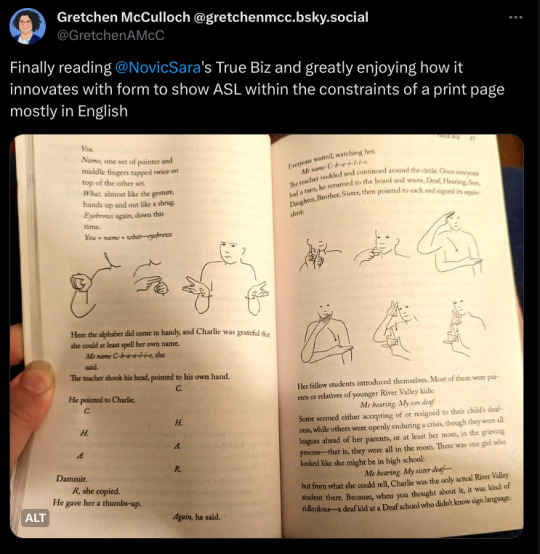
View On WordPress
#because internet#book#internet linguistics#lingthusiasm#podcasts#spanish edition#translations#tweets#twitter
121 notes
·
View notes
Text
as a huge unreliable narrator enjoyer i love the fact that the raven tower is narrated by someone who cannot lie. so the narration is not unreliable, and any kind of uncertainty is always couched in "here is a story i have heard" or "i imagine", but it scratches the same itch as unreliable narration because the evidentiality of the narration is still so central, just in the opposite way. stories that don't care about where the narrator is getting their information or what biases are present in the way that information is shared with us are on one end of a spectrum, and stories that do care about those things are on the other end, and the raven tower is firmly situated alongside the unreliably narrated stories even though the whole point is that the narrator is as motivated as it is possible to be to never say something that is untrue. and it's fascinating to see how ann leckie manages to build suspense and subvert expectations without really at any point deliberately misleading the reader. every time i reread one of her books, the bouncing of the dvd screensaver in my brain gets a little more frenetic. how does she do what she does. ann leckie what is your secret.
#this post is spoiler-free btw. the narrator is very upfront about the fact that it can't lie and says this very early in the story#i'm only like 40% through my reread and i don't remember any details of what happens but i'm already losing it#and the fact that it's first-person second-person narration...completely undivorceable from the conceit of the book#might write a different post about that but probably only after i finish rereading#i finally got my sister to agree to read it and she's like 'i read the first fifteen pages! i like the style'#and i'm barely restraining myself from being like girl please read another fifty pages and get back to me#if you are not frothing at the mouth by page 100 then your money back. guaranteed.#my sister loves semantics like the linguistic subfield of semantics so i've been begging her to read this for so many years...#like i KNOW she will love it when that stuff starts becoming apparent. which is remarkably early in the book#hrrrrhughghrhrrgh i want to talk about it so bad#the raven tower#ann leckie#my posts#unreliable narrators#or not!!! actually!!!#storytelling#semantics
99 notes
·
View notes
Text

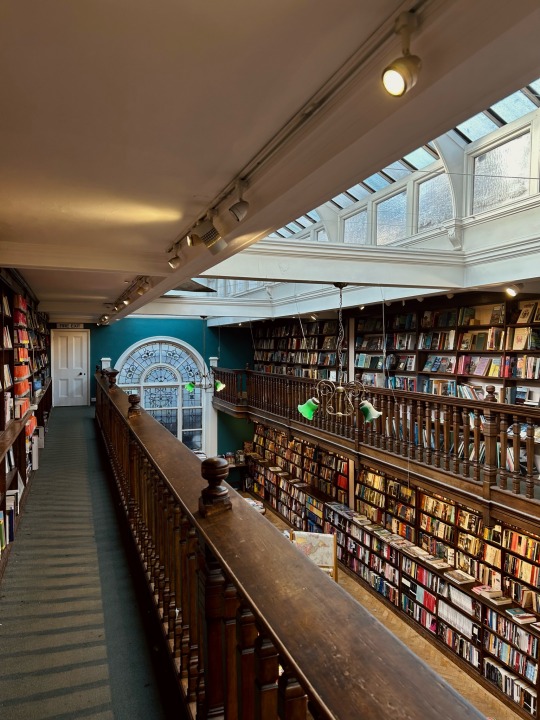


I had a delightful Sunday last week: coffee and a wander around The Wallace Collection, walking though Marylebone with an obligatory stop at Daunt books, and then basking in the sun at Regent’s Park with a cupcake 🧁
#it was a good one#now just dealing with the noisy neighbours which is causing anxiety but we’re trying our best#questwithambition#studyblr#studyspo#london#photography#museum#art#gallery#the Wallace collection#books#bookblr#currently reading#a very short introduction to linguistics
82 notes
·
View notes
Text
"Languages aren't just made of words. They're modes of looking at the world. They're the keys to civilization. And that's knowledge worth killing for."
R.F. Kuang, Babel
545 notes
·
View notes
Text
I feel like anyone who's about to embark on attempting to type out a character's accent phoentically (at least as well as one can with English) should probably stop for a moment before they get going and ask themselves, "How would I, myself, feel about a fic where the one character who sounds like me had their speech written out like this and every other character just got their dialogue left in standard spelling?" I feel like a lot of people would tone it down a bit, at least, if they'd done that thought experiment first.
(Anyone who answered "but I don't have an accent!" isn't allowed to write out anyone else's accent, ever. This rule may seem harsh but you need it. Really, you do. Because you've never had anyone treat your accent as abnormal or comical or wrong, so you really don't know what you're inflicting on others here.)
#writing stuff#have you read that fic where the socially prestige accent is the one being carefully typed out “like it sounds”? no? neither have i :(#the obvious note-for-Americans on typing out UK accents is that most of them carry some connotation of class and/or 'education'#within the uk: ask yourself why a Geordie gets typed out but not some dude from the Home Counties#typing out an accent is - usually - a roundabout way of saying “this person talks WRONG! they're not NORMAL!”#you may also find 'Scottish Twitter' informative for the distinction between in-group and out-group 'transcriptions' of accent/dialect#(i use that example only cos I'm Scottish btw)#(oh yes EVERYONE thinks I have an accent! and many of them attempt to replicate it badly in text!)#fun story: one time i had to learn the [IPA] for a linguistics class and the examples were 'standard' English pronunciations#and I went in the next day BAFFLED by why the book insisted that 'boot' and 'foot' don't contain the same vowel sound#(cos they fuckin do don't they?!)#the tutor explained and was v interested in the fact that to me they're the same. i was then asked to demonstrate again for the class.#but i - alas - was not offered repeated examples of however the fuck people say boot and foot in RP :(#(this was IN SCOTLAND btw)#anyway mibbe jist dinnae dae it? mibbe?#and if you do you have use the actual IPA. there now i've made it more trouble than it's worth for most people.
266 notes
·
View notes
Text
Blackcrowing's Master Reading List

I have created a dropbox with pdfs I have gathered over the years, I have done my best to only allow access to documents which I found openly available through sites like JSTOR, Archive.org, or other educational resources with papers available for download.
That being said I ALSO recommend (I obviously have not read all of these but they are either in my library or I intend to add them)
📚 Celtic/Irish Pagan Books
The Morrighan: Meeting the Great Queens, Morgan Daimler
Raven Goddess: Going Deeper with the Morríghan, Morgan Daimler
Ogam: Weaving Word Wisdom, Erynn Rowan Laurie
Irish Paganism: Reconstructing Irish Polytheism, Morgan Daimler
Celtic Cosmology and the Otherworld: Myths, Orgins, Sovereignty and Liminality, Sharon Paice MacLeod
Celtic Myth and Religion, Sharon Paice MacLeod
A Guide to Ogam Divination, Marissa Hegarty (I'm leaving this on my list because I want to support independent authors. However, if you have already read Weaving Word Wisdom this book is unlikely to further enhance your understanding of ogam in a divination capacity)
The Book of the Great Queen, Morpheus Ravenna
Litany of The Morrígna, Morpheus Ravenna
Celtic Visions, Caitlín Matthews
Harp, Club & Calderon, Edited by Lora O'Brien and Morpheus Ravenna
Celtic Cosmology: Perspectives from Ireland and Scotland, Edited by Jacqueline Borsje and others
Polytheistic Monasticism: Voices from Pagan Cloisters, Edited by Janet Munin
📚 Celtic/Irish Academic Books
Early Medieval Ireland 400-1200, Dáibhí Ó Cróinín
The Sacred Isle, Dáithi Ó hÓgáin
The Ancient Celts, Berry Cunliffe
The Celtic World, Berry Cunliffe
Irish Kingship and Seccession, Bart Jaski
Early Irish Farming, Fergus Kelly
Studies in Irish Mythology, Grigory Bondarnko
Prehistoric Archaeology of Ireland, John Waddell
Archeology and Celtic Myth, John Waddell
Understanding the Celtic Religion: Revisiting the Past, Edited by Katja Ritari and Alexandria Bergholm
A Guide to Ogam, Damian McManus
Cesar's Druids: an Ancient Priesthood, Miranda Aldhouse Green
Animals in Celtic Life and Myth, Miranda Aldhouse Green
The Gods of the Celts, Miranda Green
The Celtic World, Edited by Miranda J Green
Myth and History in Celtic and Scandinavian Tradition, Edited by Emily Lyle
Ancient Irish Tales, Edited by Tom P Cross and Clark Haris Slover
Cattle Lords and Clansmen, Nerys Patterson
Celtic Heritage, Alwyn and Brinley Rees
Ireland's Immortals, Mark Williams
The Origins of the Irish, J. P. Mallory
In Search of the Irish Dreamtime, J. P. Mallory
The Táin, Thomas Kinsella translation
The Sutton Hoo Sceptre and the Roots of Celtic Kingship Theory, Michael J. Enright
Celtic Warfare, Giola Canestrelli
Pagan Celtic Ireland, Barry Raftery
The Year in Ireland, Kevin Danaher
Irish Customs and Beliefs, Kevin Danaher
Cult of the Sacred Center, Proinsais Mac Cana
Mythical Ireland: New Light on the Ancient Past, Anthony Murphy
Early Medieval Ireland AD 400-1100, Aidan O'Sullivan and others
The Festival of Lughnasa, Máire MacNeill
Curse of Ireland, Cecily Gillgan
📚 Indo-European Books (Mostly Academic and linguistic)
Dictionary of Indo-European Concepts and Society, Emily Benveniste
A Dictionary of Selected Synonyms in the Principle Indo-European Languages, Carl Darling Buck
The Horse, the Wheel and Language, David W. Anthony
Comparative Indo-European Linguistics, Robert S.P. Beekes
In Search of the Indo-Europeans, J.P. Mallory
Indo-European Mythology and Religion, Alexander Jacob
Some of these books had low print runs and therefore can be difficult to find and very expensive... SOME of those books can be found online with the help of friends... 🏴☠️
library genesis might be a great place to start... hint hint...
#books#book#resource#blackcrowing#pagan#paganism#irish mythology#celtic#irish paganism#irish polytheism#celtic paganism#celtic polytheism#celtic mythology#indo european#indo european mythology#historical linguistics#paganblr#masterlist#irish reconstructionism#irish reconstructionist#celtic reconstructionist#celtic reconstructionism#masterpost
95 notes
·
View notes
Text
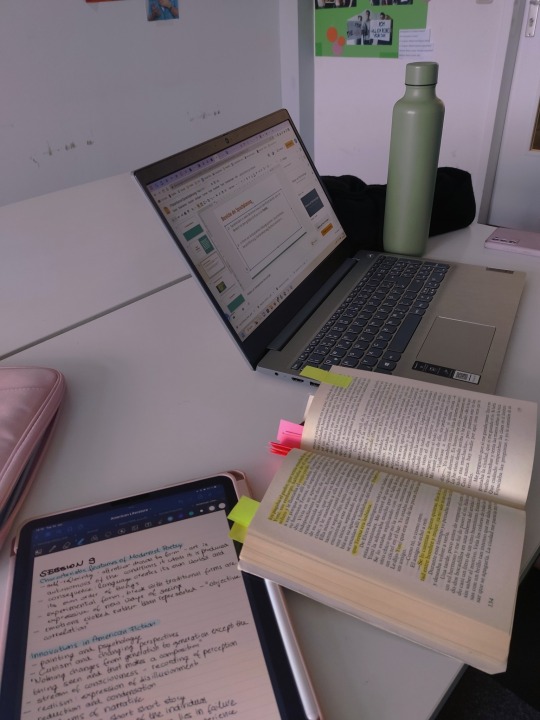

10.1.23🌷 did a short revision session and then watched my friend be productive for two hours :)
#today was a good day!#so happy to see all of my friends again! :))#studyblr#langblr#aesthetic#study aesthetic#study inspiration#studying linguistics#studying english literature#studyspo#academia#notes in english book in spanish presentation in german👁️👄👁️#mr worldwide
1K notes
·
View notes